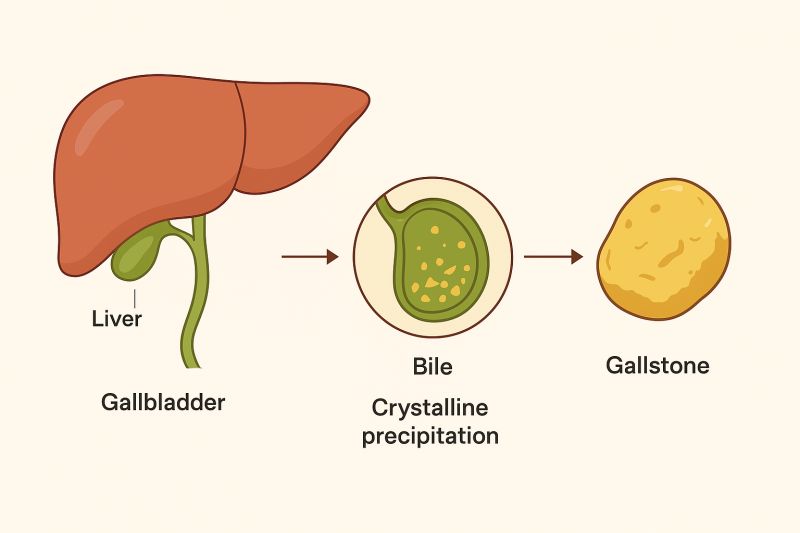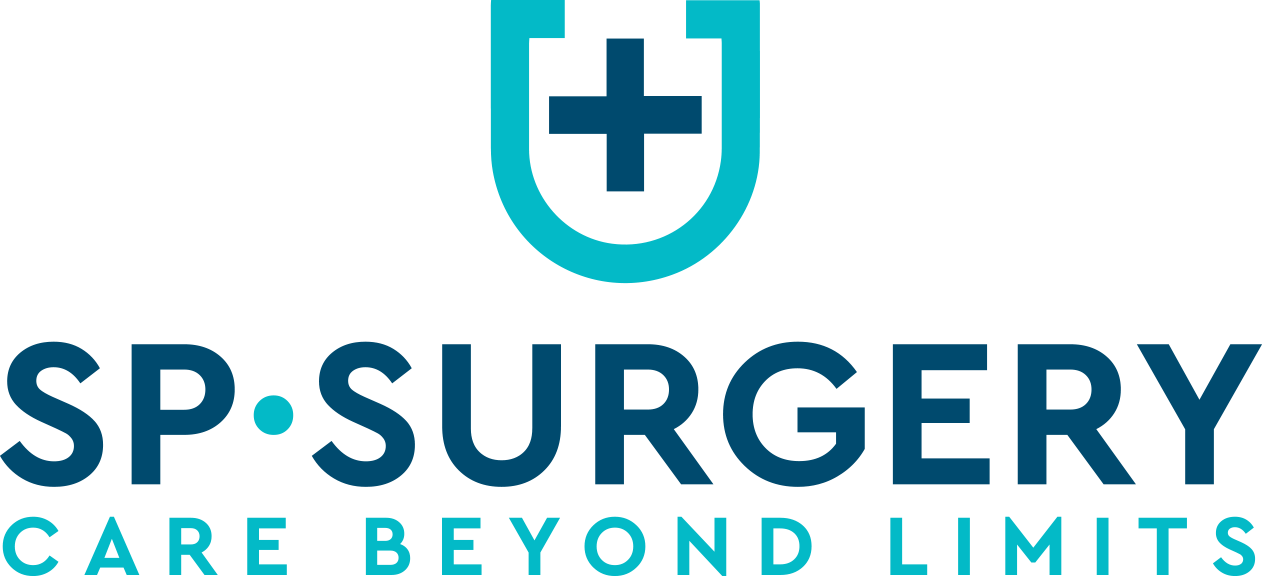Gallstones are solid particles forming in the gallbladder that may block bile flow and cause pain, infection or jaundice. We offer timely diagnosis and minimally invasive treatment to relieve symptoms and prevent complications.
Gallstone Disease and Surgical Treatment
Causes and Risk Factors
• Cholesterol supersaturation or altered bile composition; excess bilirubin; infrequent gallbladder emptying
• Risk: obesity, rapid weight loss (including post‑bariatric), female sex, pregnancy, age >40, diabetes, family history, certain medications
Symptoms
• Biliary colic: sudden upper‑right/epigastric pain (minutes to hours), often after fatty meals; may radiate to back/shoulder
• Nausea/vomiting, bloating; fever/jaundice if complications occur
• Dark urine or pale stools in bile duct obstruction

Treatment Options
• Laparoscopic cholecystectomy (gold standard)
• ERCP for common bile duct stones
• Ursodeoxycholic acid for selected non‑surgical candidates (slow dissolution; higher recurrence)
About Laparoscopic Cholecystectomy
• Performed under general anaesthesia via four small incisions; abdomen inflated with CO₂, camera and instruments remove the gallbladder.
• Day‑case in most patients; overnight stay if late‑day surgery or clinical need.
Risks (key figures)
• Bile duct injury or leak (~0.3%/1%; some require ERCP or further surgery)
• Retained/slipped duct stones (~4%)
• Injury to adjacent organs (~0.2%)
• DVT (~0.2%); wound infection (~1%); post‑cholecystectomy bowel changes (~3%); return to theatre (~0.8%)
Recovery and Self‑Care
• Home the same day in most cases; light activity from day 1, avoid heavy lifting for ~2 weeks.
• Dressings typically removed/changed at day 5; dissolvable sutures.
• Expect transient shoulder pain (from CO₂), mild nausea, and temporary bloating/diarrhoea.
Prevention and Lifestyle
• Balanced, lower‑fat diet rich in fibre; regular meals; gradual weight loss if needed.
• After bariatric surgery, short‑term ursodeoxycholic acid may reduce stone formation risk.
Why Dr. Spyros Panagiotopoulos?
With extensive hepatobiliary and metabolic surgery experience, Mr. Panagiotopoulos provides safe, precise cholecystectomy and clear guidance on recovery and prevention.
